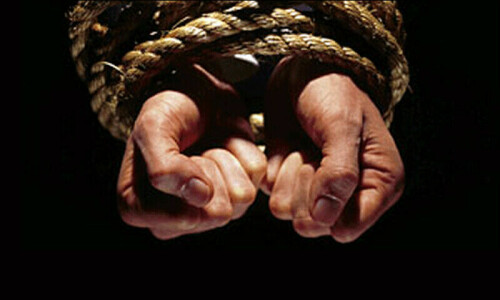ISLAMABAD, Jan 25: The Pakistan People’s Party (PPP) has said it would form a national government with like-minded political forces, even if it won two-thirds majority in the parliament in the forthcoming general elections.
Speaking at a seminar on “Political parties’ manifesto for election 2008”, organised by the Pakistan Liberal Forum, PPP Punjab secretary information Farzana Raja said it would be done to ensure collective efforts for the well-being of the people.
She said there would be no room for the PML-Q and religious parties in the national government.
The seminar was also addressed by Syed Zafar Ali Shah of PML-N, Haji Adeel of Awami National Party (ANP), civil society representative Anees Jilani and Pakistan Liberal Forum chairman Asif Khan.
Farzana Raja said elections were inevitable to steer the country out of the crisis and the government must not be provided any justification to further put off the polls.
She said the Pakistan Muslim League (PML-Q) wanted to prolong its rule and “the PPP despite knowing that the polls will be rigged decided to take part in them.”
Responding to remarks made by PML-N leader Syed Zafar Ali Shah, Ms Raja said the PPP had never talked of giving the International Atomic Energy Agency (IAEA) access to Dr Abdul Qadeer Khan.
“You must not become part of the propaganda being unleashed by the regime,” she remarked.
She said the PPP had, however, demanded inquiry by a parliamentary commission into the export of nuclear technology and still believed that it should be done to find out who was behind all this mess.
She said the PPP had pledged in its manifesto to deal with the issues of extremism and terrorism, adding that it would not support the religious seminaries promoting militancy.
The leader said the PPP would create new job opportunities to bring down the level of unemployment.
Ms Raja said the PPP would increase energy generation from the current 28,000 mega watt to 38,000 mega watt by 2015.
PML-N Vice-President Syed Zafar Ali Shah welcomed the decision of the new army chief, Gen Ashfaq Pervez Kayani, of barring army personnel from indulging in political activities.
He said an important feature of the PML-N manifesto was to close the doors for military interventions in future by strengthening the political system.
He said the party in its manifesto had pledged to restore the pre-November 3 judiciary, if it was voted to power. He lamented that the judges of the constitutional courts were sacked through an unconstitutional order to prevent the apex court from deciding a case pertaining to eligibility of President Pervez Musharraf to contest the presidential election.
Mr Shah said his party was taking part in the elections under protest and had tried to convince the PPP that the opposition should boycott the elections. He said under the constitution, President Musharraf was disqualified from contesting the election, adding that free and fair elections under him were out of the question. He said President Musharraf had miserably failed to implement his seven-point agenda during his over eight years in power despite enjoying absolute power.
He said he did not recognise the PML-Q as a political party and pointed out that President Musharraf in his book In the line of fire had conceded that he formed the party.
Haji Adeel of ANP said his party was ready to accept Gilgit and Baltistan as a separate entity or its merger with the NWFP. He said his party believed in an independent judiciary and would abolish parallel judicial system.
Mr Adeel said the ANP was against hegemony of a particular country and wanted dignified relations with all the countries, including the United States. He underlined the need for good trade relations with India and Afghanistan.
Asif Khan said taking part in the forthcoming general elections would be tantamount to providing legal cover to the Musharraf regime.
He was of the view that the decision to hold general polls was a ploy of the government to defuse the lawyers’ movement which was gaining momentum day by day. He said the elections would lead to more destabilisation, chaos and confusion, and divide the society.















































